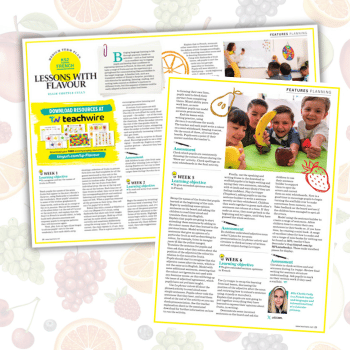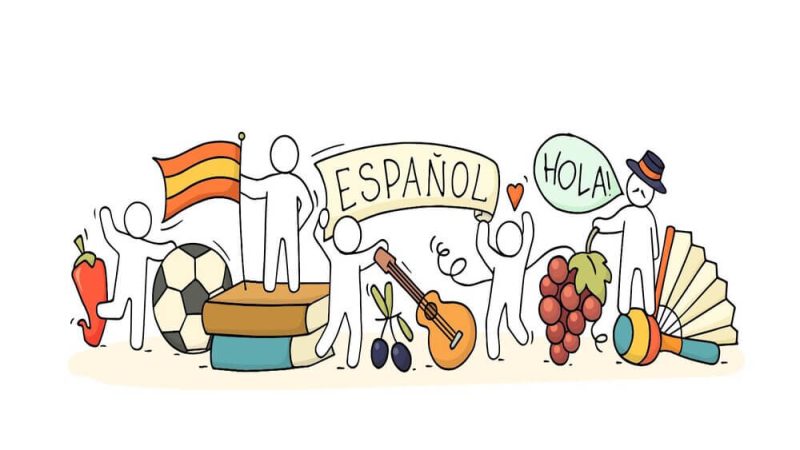KS2 MFL – Incorporate DfE targets without boring pupils

Teach pupils to become language detectives and develop their very own linguistic superpowers with these six simple steps for KS2 MFL

That certain ‘magic’ in KS2 MFL – the x-factor that inspires pupils and adds intercultural understanding to the classroom – is not to be underestimated. Sadly, it’s also easily missed.
With over 15 years’ experience teaching modern foreign languages (MFL), and increasingly training and supporting other teachers, I see first-hand the understandable gaps that exist in primary schools.
At the heart of this is confidence: for children, of course, but critically for teachers – both trainees to experienced pros. But what are the ingredients for that special something?
Practical application of language, developing effective speaking, listening, reading and writing skills and where these fit within the curriculum, remain a stumbling block for many.
Effective coordination of teaching and learning, celebrating languages, and the school ethos and community reach are all necessary, too.
All the while, of course, we can’t lose sight of targets, and what children need to move on to the next stage of their MFL schooling.
So here are six creative ways to incorporate DfE attainment targets into your planning, improve your confidence, and make your lessons sparkle…
1. Promote ‘having a go’
With languages, we all make mistakes all the time. I will often have to double check a spelling in a bilingual dictionary or play a phrase back using an audio file to check pronunciation.
It is crucial the children see this as a strength to improvement and not a weakness. Rewarding strategies, skills and a positive attitude to learning are really important for fostering a growth mindset (and that seismic shift from ‘I can’t do it’ to ‘I will do it’).
A culture of ‘having a go’, and of recognising children who have stepped out of their comfort zone to try something new and learn from it, is something we should all be encouraging in our language lessons and beyond.
2. Discuss metacognition
We use language learning strategies all the time in our MFL lessons. But do you discuss why we use them, and how they help, with the children?
When we put our ‘silly’ actions to new words, there is a scientific reason behind it. It is called a Total Physical Response or TPR – by linking something physical with language, the connection can strengthen within the brain.
I wow the children with this nugget of science and, for some who are initially reluctant to keep up with all the physicality, when you explain that next week when we play a competitive game, those joining in with actions might have a chance of winning, they are usually swayed to join.
In fact, when the next week comes and children are focusing on recall, it is often the action they remember first, but soon after the language follows.
3. Encourage active learning
We know children learn through a combination of styles, and it is useful for them to work out how they learn best.
Some of my Year 6s like to take notes in language lessons and I am all for that. Some bring a little notebook in from home, some like to practise spelling patterns over and over on a whiteboard, and some like to annotate their tracking clouds (in which children can write a number of words that relate to a certain topic) with target language they know or remember.
For others, dual coding supports them and luckily, again, we always accompany new vocabulary with clear pictures, photos, flashcards, etc.
Active learners thrive in games like Simon Says, drama and mime activities, and of course MFL appeals to the auditory senses too, teaching by songs, rhymes, poems and the richness of sound when focusing on phonics and speaking tasks.
They lead to the fun, joy and laughter that is also key for that all-important motivation.
4. Use memory hooks
Mnemonics, sound similarities, links with other words and concepts… whatever the word makes you think of can help in remembering its spelling and meaning.
What makes these hooks even more powerful is sharing them.
I award ‘language detective’ points to those who tell the rest of the class what their memory hooks are and allow others to ‘magpie’ them if they work for them too.
As an example, gamers might link the French word for tired, fatigue, with the fatigue level meter on their computer games, working out that it means a lack of energy.
One of my favourites recently was how to remember the difference between the pronouns for he and she (il and elle).
A Year 5 child told me if you put a B in front of both you would get Bill and Belle helping you to remember which is which.
5. Practice, practice, practice
Ideally, your warm-up/starter should be a retrieval task recapping previous learning. And then, why not make use of those two minutes here, five minutes there during the week – such as at transition times – to re-visit language?
Try listening and joining in with a song during tidy-up time, choosing who lines up for break or lunch by listing vocabulary or answering a target language question, using your PE warm-up time to recap new words in a game of corners.
In fact, little and often is most effective with language.
I always say registrations are the most under-used time for learning.
Think about it, the two-and-a-half minutes it takes to do the register, twice a day, can be a great opportunity to use the target language.
Answer with the name of a sport or an opinion phrase, for example.
6. Language detective superpowers
In adult speak, ‘language detective superpowers’ are the transferable skills that will go with pupils to KS3 and beyond:
- The ability to identify foreign language words and phrases learned previously, and apply that knowledge to an unfamiliar context.
- Being able to spot cognates and near-cognates (words which are the same or similar in English as in the target language).
- Using all clues to decipher meaning often with an educated guess if needed (pictures, diagrams, context).
- Using a bilingual dictionary or online reference tool to look up words that may be key to meaning.
Alongside these linguistic ‘superpowers’, of course, are the further skills of problem-solving, communication, appreciation of culture and diversity and collaborative learning.
All of this will prepare learners for secondary school – they can apply these skills to any language and be on the path to success!
Low-prep activities
Mind-readers
Write a target word or phrase on a piece of paper or mini whiteboard, but keep it hidden. Give the children a go at guessing what you’re thinking of. That’s really all there is to it!
You can have recent vocabulary or phrases on the screen as support, or make this a true recall activity where pupils retrieve the language recently learned from memory (obviously give your class a clue as to which topic area it is).
The magic really happens when a child guesses correctly; they truly think they can read your mind!
Head-to-head
Select two children to stand up and challenge each other. You (or another member of the class) say a target word or phrase, and the first person out of the two who correctly translates it gets to stay standing and take on another member of the class.
This can be done both working from target language to English and vice-versa of course.
Set a timer and whoever is still standing at the end of the time wins a prize!
Kate Percival is a primary school teacher, primary MFL consultant at Primary Languages Network, and associate subject consultant for primary languages at the NASBTT, where she supports subject development resources. Browse our resources for European Day Of Languages.











